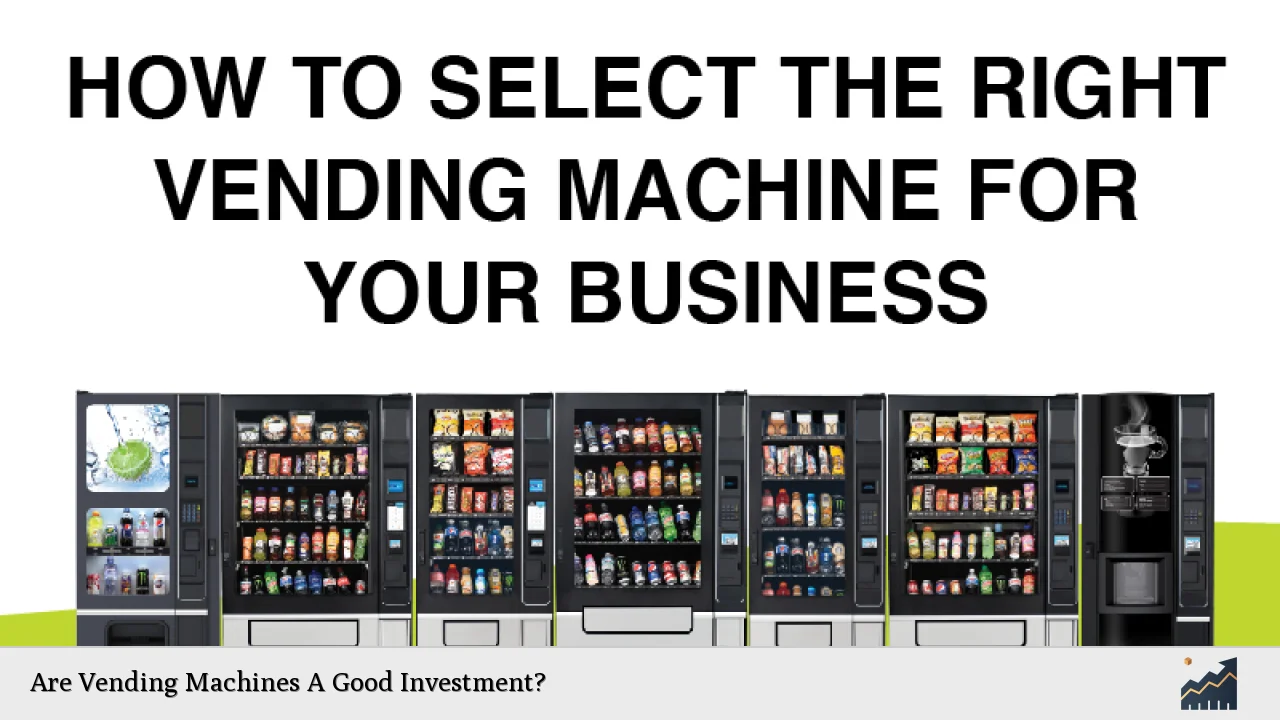Investing in vending machines has gained popularity as a potential source of passive income, appealing to both novice and seasoned investors. This business model offers unique advantages, such as low operational demands and the ability to generate revenue in high-traffic areas. However, like any investment, it comes with its own set of challenges and considerations. This article explores the current market landscape, implementation strategies, risk factors, regulatory aspects, and future outlook for vending machine investments.
| Key Concept | Description/Impact |
|---|---|
| Market Growth | The global vending machine market is projected to grow from $44.66 billion in 2023 to $48.72 billion in 2024, with a CAGR of 9.1%. |
| Profitability | A well-placed vending machine can yield monthly revenues between $400 to $750, translating to annual earnings of approximately $8,400. |
| Initial Investment | Initial costs for vending machines range from $3,000 to $10,000 depending on the type and technology. |
| Break-even Period | Investors can expect to recoup their initial investment within 12-18 months with proper location selection. |
| Payment Methods | Modern machines that accept cashless payments significantly increase sales potential. |
Market Analysis and Trends
The vending machine industry has seen robust growth over recent years, driven by changing consumer preferences for convenience and on-the-go consumption. The global market size is expected to reach approximately USD 21.57 billion by 2024 and grow to USD 27.77 billion by 2029 at a CAGR of 5.18%. This growth is fueled by several factors:
- Urbanization: Increasing urban populations demand quick access to snacks and beverages.
- Technological Advancements: New vending machines equipped with touchless interfaces and diverse payment options cater to modern consumer habits.
- Health Consciousness: There’s a growing trend towards healthier snack options in vending machines, aligning with consumer health trends.
The COVID-19 pandemic has also accelerated the adoption of contactless payment systems in vending machines. As consumers become more health-conscious, the demand for machines offering organic or healthy snack options is expected to rise.
Implementation Strategies
To successfully invest in vending machines, consider the following strategies:
- Location Selection: The profitability of a vending machine heavily relies on its location. High foot traffic areas such as schools, offices, gyms, and public transport stations are ideal.
- Product Selection: Tailor the product offerings based on the location’s demographics. For instance, healthy snacks might perform better in gyms while traditional snacks may suit office environments.
- Machine Type: Choose between traditional machines or smart vending solutions that offer advanced features like cashless payments and inventory tracking.
- Regular Maintenance: Ensure machines are regularly stocked and maintained to avoid downtime and lost sales.
Risk Considerations
Investing in vending machines does come with risks that must be managed:
- Initial Costs: The upfront investment can be significant depending on the type of machine purchased.
- Location Risks: Poor location choices can lead to low sales volumes and difficulty recouping investments.
- Operational Costs: Ongoing expenses such as restocking, maintenance, insurance, and permits can impact profitability.
- Market Competition: The increasing number of vending machine operators may saturate certain markets, affecting individual machine profitability.
Regulatory Aspects
Understanding local regulations is crucial for operating a successful vending machine business:
- Licensing Requirements: Depending on the region, specific permits may be necessary to operate vending machines legally.
- Health Regulations: Compliance with health codes is essential when selling food items. Regular inspections may be required.
- Tax Obligations: Be aware of sales tax implications associated with vending machine sales in your jurisdiction.
Staying informed about regulatory changes can help mitigate legal risks associated with operating vending machines.
Future Outlook
The future of vending machine investments appears promising due to several emerging trends:
- Increased Demand for Contactless Payments: The shift towards cashless transactions is expected to continue growing as consumers prefer quicker payment methods.
- Smart Vending Solutions: Innovations such as AI-powered inventory management systems are likely to enhance operational efficiency and customer experience.
- Sustainability Trends: Environmentally friendly practices will become more important as consumers increasingly favor businesses that prioritize sustainability.
Overall, the vending machine industry is poised for continued growth as it adapts to evolving consumer preferences and technological advancements.
Frequently Asked Questions About Are Vending Machines A Good Investment?
- What is the average return on investment (ROI) for vending machines?
The average ROI for a well-managed vending machine business can reach up to 100% within 18 months. - How much does it cost to start a vending machine business?
The initial investment typically ranges from $3,000 to $10,000 per machine depending on various factors like type and technology. - Where should I place my vending machines?
High traffic locations such as offices, schools, gyms, and hospitals are ideal for maximizing sales potential. - What types of products sell best in vending machines?
Beverages and snacks are traditionally popular; however, healthier options are gaining traction among consumers. - How often do I need to restock my vending machines?
This depends on sales volume but typically requires weekly or bi-weekly restocking to maintain inventory levels. - Are there any ongoing costs associated with running a vending machine?
Yes, ongoing costs include maintenance, restocking supplies, insurance, permits, and utilities. - Can I operate multiple vending machines?
Yes! Many operators expand their business by adding more machines once they establish successful locations. - What technology should I look for in modern vending machines?
Look for features like cashless payment options (credit cards/mobile payments), inventory tracking systems, and user-friendly interfaces.
In conclusion, investing in vending machines can be a lucrative opportunity if approached strategically. By understanding market trends, implementing effective management practices, and navigating regulatory requirements carefully, investors can position themselves for success in this growing sector.

